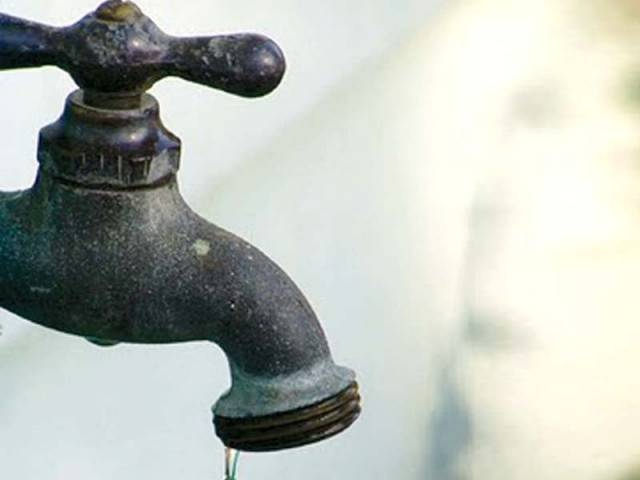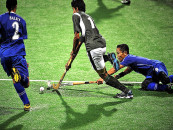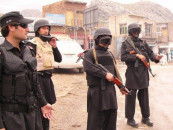Water woes — Part V: Lahore’s growth abounds, but water runs scarce
Nearly half of Lahore’s households rely, at least in some part, on tube wells.

If one is to understand the acute water shortage in Lahore, the historic Ravi River is a case study. It was on the banks of this river that Lahore was born, providing sufficient water to its inhabitants. But not anymore.
Today, the river has become the principal drain for Lahore’s waste, as residents and industries pour millions of gallons of sewage into it each day. This means the increasing population in the country’s second largest city has to look for other sources – tube wells.
Nearly half of Lahore’s households rely at least in some part on these wells, which are operated by the Water and Sanitation Agency (Wasa) or private housing societies.
The city’s first ‘modern’ clean drinking water system was installed by the British in 1876. At the time, the system was built in a manner that water from Ravi River would approach a reservoir, the tank of Lakhpat Rai (also known as ‘Pani Wala Talab’), after passing through 28 wells and be a source of clean drinking water for the city’s dwellers.
Although most residents say the reservoir, which has a capacity of 250,000 litres, continues to supply clean water to date, there are some who complain that this heritage site is nothing short of a solid waste dump with a dangerous level of arsenic in water supply. Considering that the pipelines are a couple of centuries old, this is not hard to believe.
This leaves only one option for all: extracting groundwater through tube-wells. Currently, Wasa is operating 450 tube-wells within its jurisdiction, whereas an additional 500 have been installed by the government in their residential complexes including railway colonies, postal colonies, Wapda colonies, Model Town, DHA and cantonment areas among others in private housing societies sprouting across Lahore.
Water from these wells is directly supplied through a piped-network by Wasa, but in some cases residential colonies store this in a reservoir.
It is one of the principal reasons why groundwater in Lahore is drying up faster than in most urban areas in the country with water levels falling nearly three feet annually, say experts.
Meanwhile, Wasa says this is the only option it has to avert a major water-crisis. Although it claims to cover 89 per cent of the areas within its jurisdiction, critics say the statistic is ‘far from reality’.
Most of the tube-wells are shut during load-shedding hours, which increase during the summers. Only 30 per cent are connected with generators to ensure an inflow of water all day long and prevent the pipes from becoming dry.
However, those in low-income neighbourhoods not only complain about the quantity of water they receive, but also its quality.
According to an October 2009 analysis report by the Pakistan Council of Research in Water Resources (PCRWR), groundwater from some 183 tube wells was found to be contaminated with Arsenic.
Another analysis conducted by the University of Engineering and Technology in June 2010 revealed that out of 392 tube-wells, high concentration of arsenic was found in groundwater from 168, while in 82 others the level of this poisonous chemical was between 10 ppb and 50 ppb.
For its part, Wasa’s managing director admitted before the court recently that it was supplying contaminated water and assured that the agency would install 21 water filtration plants before June 30, 2011 along with replacing old pipes with new ones in the city’s sewerage system. However, that it is yet to happen.
On the issue of sewage, which is polluting one of Lahore’s oldest water supplies, Wasa spokesman Imtiaz Ghauri told The Express Tribune that they are “just months away from installing the first waste-water treatment plant in Mahmood Booti, at the edge of Ravi River, after which 40 per cent of wastewater will be treated before falling into Ravi.”
Until then, this Walled City just has to hope it can come back to a river again.
Published in The Express Tribune, September 18th, 2011.



















COMMENTS
Comments are moderated and generally will be posted if they are on-topic and not abusive.
For more information, please see our Comments FAQ